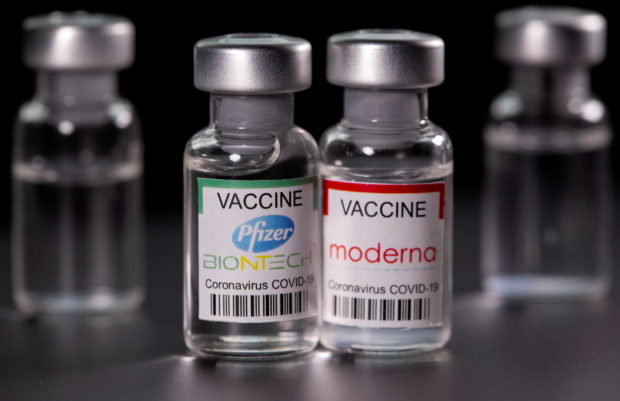
FILE PHOTO: Vials with Pfizer-BioNTech and Moderna coronavirus disease (COVID-19) vaccine labels are seen in this illustration picture taken March 19, 2021. REUTERS/Dado Ruvic/File Photo
The mRNA vaccine from Pfizer-BioNTech may be less effective than Moderna’s against the Delta variant of the coronavirus, according to two reports posted on medRxiv on Sunday ahead of peer review.
In a study of more than 50,000 patients in the Mayo Clinic Health System, researchers found the effectiveness of Moderna’s vaccine against infection had dropped to 76 percent in July—when the Delta variant was predominant—from 86 percent in early 2021.
Over the same period, the effectiveness of the Pfizer-BioNTech vaccine had fallen to 42 percent from 76 percent, researchers said.
While both vaccines remain effective at preventing COVID hospitalization, a Moderna booster shot may be necessary soon for anyone who got the Pfizer or Moderna vaccines earlier this year, said Dr. Venky Soundararajan of Massachusetts data analytics company nference, who led the Mayo study.
In a separate study, elderly nursing home residents in Ontario produced stronger immune responses—especially to worrisome variants—after the Moderna vaccine than after the Pfizer-BioNTech vaccine.
The elderly may need higher vaccine doses, boosters and other preventative measures, said Anne-Claude Gingras of the Lunenfeld-Tanenbaum Research Institute in Toronto, who led the Canadian study.
When asked to comment on both research reports, a Pfizer spokesperson said, “We continue to believe … a third dose booster may be needed within six to 12 months after full vaccination to maintain the highest levels of protection.”